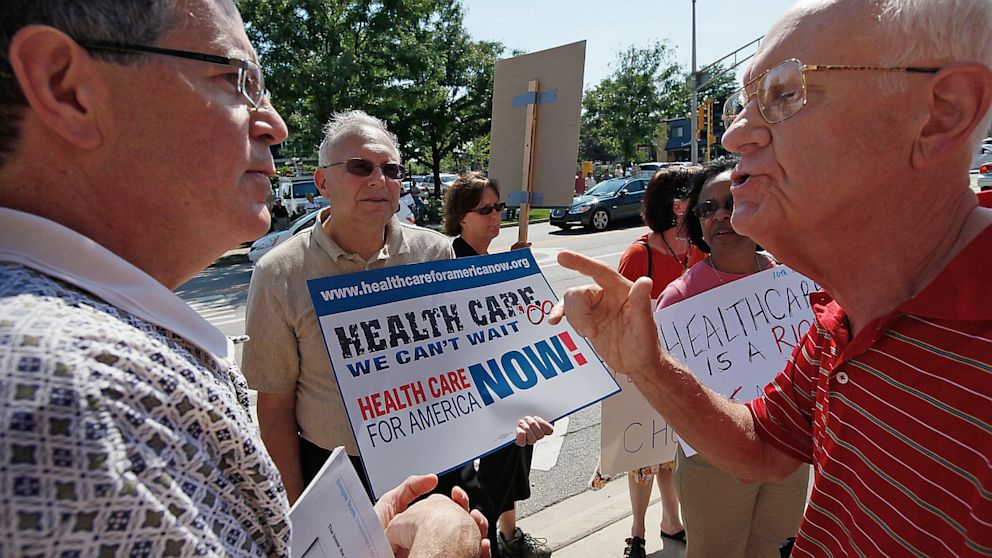Tea Party Blasts Lawmakers for Fearing Town Hall Obamacare Fight
Conservative activists are turning to more traditional advocacy strategies.

Aug. 20, 2013— -- Reports of the tea party's demise are greatly exaggerated, or so its leadership would have us believe.
Sure, the 4-year-old movement is maturing and all those attention-grabbing headlines from 2009 are much harder to come by in 2013.
But conservative activist Brent Bozell, who is attempting to build support for defunding President Obama's health care law, said establishment Republicans are running away from their constituents, a sign that bucking the tea party's grassroots agenda is fraught with peril.
"Isn't it interesting how times change; that just three years ago, Republicans were rushing to have town halls and now they're running as fast as they can from town halls," Bozell, the chairman of For America, told ABC News.
"This is what happens when you know you're not representing your constituents; you know you're going to catch an earful from your constituents."
Gone are the days of raucous town hall meetings borne from organic outrage, although it's unclear how the number of meetings these days compare with previous years.
Still, conservative activists are now turning to strategies that traditional advocacy groups have used for years: calls to member offices, television ads and intensive central coordination.
Tea Party Patriots' co-founder and president Jenny Beth Martin has tracked down 250 town halls that are sponsored by lawmakers this month, a far cry from the 535 members of Congress up for re-election next year.
"They're not having town halls," Martin said. "How can you have a huge turnout at events if they're not having town halls?"
It's the now-perennial question asked by activists on both sides of the aisle since 2009's town-hall heat forced elected officials to beware the dangers of having their constituent meetings memorialized on YouTube.
As a result, for the first time, Martin said volunteers from across the country are gathering in Atlanta to create a central command of sorts that will help grassroots activists corral their activism this month.
"We have people who are tracking and monitoring social media and Google and Nexis for town hall events from around the country and keeping up with all of that," Martin said. "We have local groups that are planning events that they want us to help promote. Some local groups are asking for help with speakers."
This level of activity, mostly designed to help organizers pin down their squirrely lawmakers, will last for several weeks. And although it might sound like a typical organizational strategy, it's not something Martin's group, the largest tea party group in the country, has ever had to do.
Meanwhile, Tea Party Patriots and FreedomWorks, another tea party backed group, have helped organize events across the country where the main event is an empty chair or a cardboard cutout of their absentee congressman.
But those aren't the only adjustments with which the groups have had to deal.
In 2009, Republicans were unanimous in their opposition to Obama's health care law. And the message was easy: Throw the bums out.
Electing Republicans and ousting Democrats was a straight-forward strategy that Republicans could eventually rally around.
Not this time. The opaque legislative maneuvering around defunding the health care law has split GOP leadership and the rank and file and made it easy for lawmakers to say they oppose the health care law, but still oppose the tea party strategy of tying health care to funding for the rest of the government.



